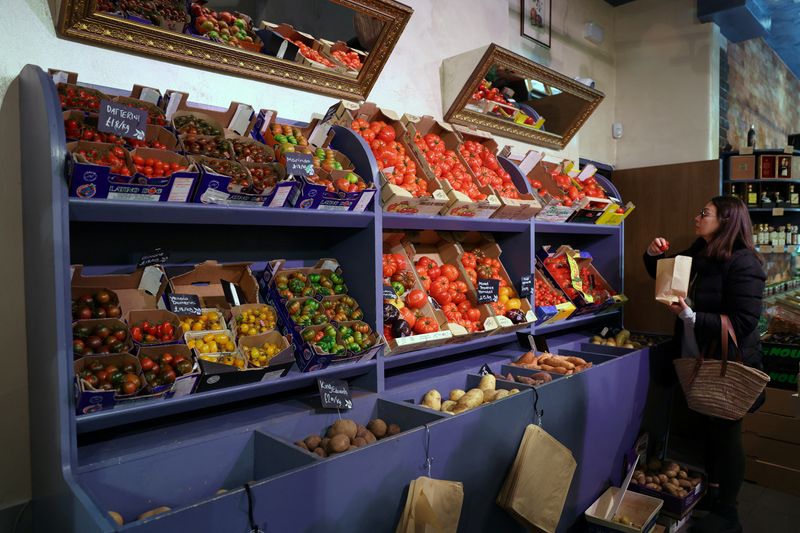LONDON (Reuters) – Prices in British shops rose at the slowest pace in almost three years last month, according to industry figures that underscore how inflation has cooled even if Prime Minister Rishi Sunak is unlikely to see much benefit in this week’s national election.
Annual shop price inflation slowed to 0.2% in June from 0.6%in May, the smallest increase since October 2021, the British Retail Consortium said on Tuesday.
Prices for non-food goods fell by 1.0% in annual terms after a 0.8% drop in May – helped by promotions on TV sets timed to coincide with the Euro 2024 soccer tournament – while food inflation slowed for a 14th month in a row to 2.5% from 3.2%%.
“This will be of help to shoppers as they plan their household budgets for essential goods and services,” said Mike Watson, head of retailer and business insight at NielsenIQ, which provides data for the BRC.
“With uncertainty around discretionary spending, we expect the intense competition across the marketplace to keep price increases as low as possible this summer.”
Sunak has sought to claim credit for the fall in headline inflation which topped 11% in 2022 and returned in May to the Bank of England’s 2% target. But opinion polls suggest his Conservative Party will lose heavily to the opposition Labour Party in Thursday’s election.
The BoE is assessing whether price pressures have abated sufficiently for it to cut interest rates for the first time since 2020. However, with inflation in the services sector running at nearly 6%, it remains unclear when it might make its move.

Investors are putting a roughly 60% chance on the BoE cutting Bank Rate to 5.0% from 5.25% on Aug. 1.
BRC Chief Executive Helen Dickinson said investment by retailers to improve their operations and supply chains was limiting price rises. She urged the next government to fix cost burdens such as the business rates tax on commercial property and an apprenticeship levy that employers say is inflexible.